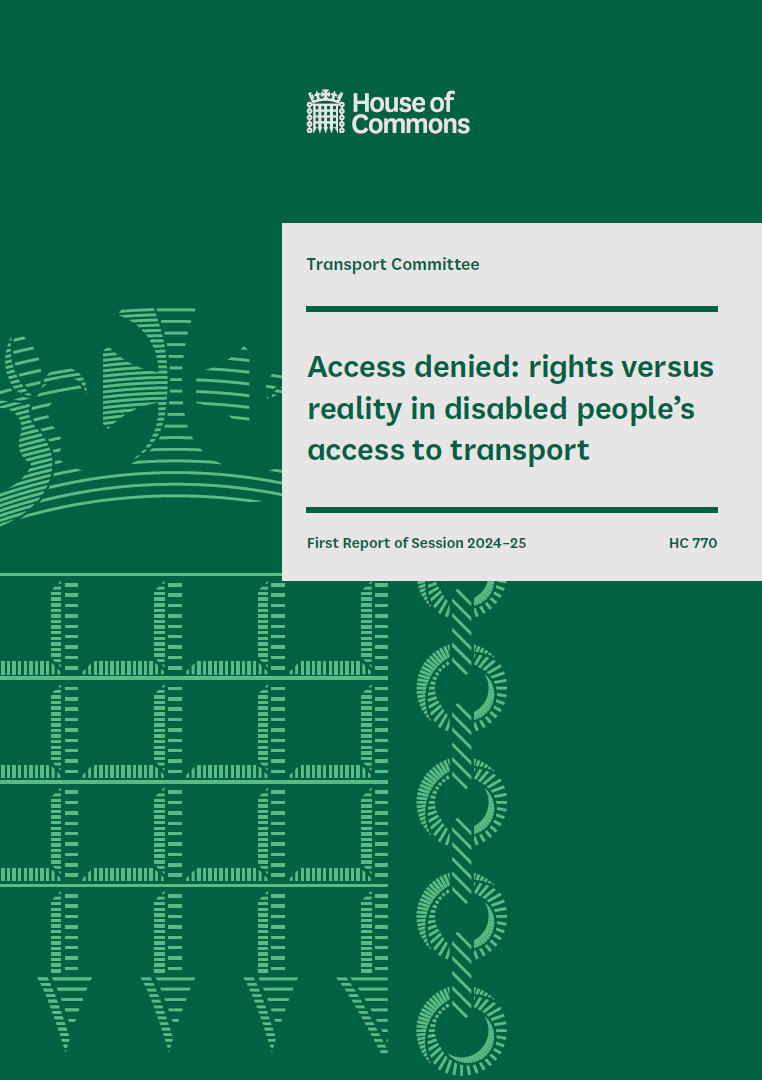T: 01822 851370 E: [email protected]
Visit RSN Survey about life in rural England to find out more.
Transport Accessibility: A Gap Between Rights and Reality
 The recent report by the Transport Committee, "Access Denied: Rights Versus Reality In Disabled People's Access To Transport," reveals a stark disconnect between the legal and policy frameworks intended to ensure transport accessibility for disabled people and the harsh realities they face daily. Despite clear policy aspirations and a robust legal framework, disabled individuals continue to encounter significant barriers across all modes of transport, impacting their ability to work, access services, and participate in social activities.
The recent report by the Transport Committee, "Access Denied: Rights Versus Reality In Disabled People's Access To Transport," reveals a stark disconnect between the legal and policy frameworks intended to ensure transport accessibility for disabled people and the harsh realities they face daily. Despite clear policy aspirations and a robust legal framework, disabled individuals continue to encounter significant barriers across all modes of transport, impacting their ability to work, access services, and participate in social activities.
Central Issues Raised in the Report:
- Systematic Failings: The report highlights systemic failings across transport modes, exacerbated since the COVID-19 pandemic. These include inadequate enforcement of accessibility laws, fragmented regulatory landscapes, and a consistent under prioritisation of accessibility in transportation planning and implementation.
- Burden on Individuals: There is an excessive burden on disabled individuals to enforce their rights through costly and stressful legal actions and ineffective complaints processes.
- Recommendations: The Committee calls for a unified complaints system for transport accessibility, a review of the legislative framework, and enhanced enforcement measures to ensure accountability and compliance.
The report urges immediate government action to align enforcement with the daily challenges faced by disabled travellers and to prioritise accessibility as a fundamental human right, not just a customer service issue.
Rural Considerations in Transport Accessibility
While the Transport Committee's report primarily addresses the systemic and nationwide issues of transport accessibility, it's important to recognise the distinct challenges faced in rural areas, which are not specifically covered in this report.
In rural communities, transportation options are often more limited, with residents facing infrequent services and longer travel distances to access essential services. This scarcity of reliable public transport can intensify isolation for disabled individuals living in rural areas. Acknowledging these rural-specific challenges is crucial as part of a broader conversation on improving transport accessibility across all regions, ensuring no community is left behind.
For further details, the full report is available to view and download HERE
 |



